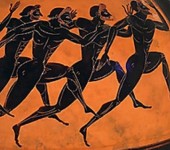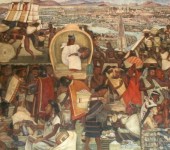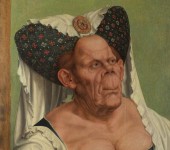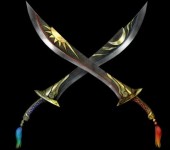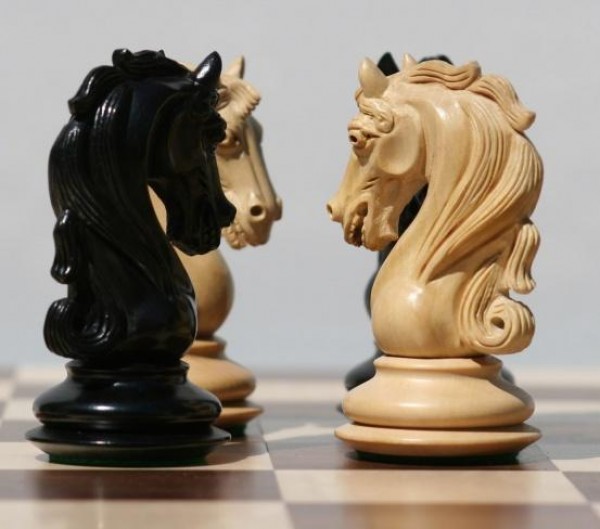
Chess is a game that has fascinated countless millions with its complexity, its beauty and its capacity to enrich daily life. It has a mysterious ability of entrapping us in a self-sufficient world where we wander for hours looking for winning variations, small advantages, surprising sacrifices or tactical traps. The game can reach such subtle nuances, that the winning move becomes invisible for the eye of the amateur, though there are those who have a surprisingly deep understanding of its principles. Creating a list of the best chess players is a challenge in itself. The following list is not based in any way on ELO ratings, but rather on each individual’s contribution to the game.
10. Deep Blue (1989-1997)
It might seem unusual to include a computer in a list of the top chess players, but Deep Blue’s place in chess history is well earned. The IBM supercomputer succeeded in defeating Garry Kasparov in 1997, after an 8 year “rivalry” between the two. The victory of the supercomputer over the great Garry Kasparov sent shock waves across the world. Many asked themselves if this means that chess “lost its soul” and if there is any place left in the game for the “romantic” aspect of the game. Kasparov accused IBM of cheating due to what he saw as a great inconsistency in the supercomputer’s playing ability. The world champion argued that human chess players must have intervened in the match in order to improve Deep Blue’s playing quality. IBM denied the allegations and refused any further rematch. Deep Blue was soon dismantled. Today, chess programs have become an essential training tool for any professional player.
9. Paul Morphy (1837-1884)
Paul Morphy is among the most interesting chess masters. Despite the fact that he was far from being a professional player, since his main occupation was the practice of law, he soon defeated most of the great chess names of his age, including Lowenthal, Adolf Andersson and Alexander Meek. Understanding complicated positions was second nature to Morphy, very complicated ideas flowing freely from the board due to an incredible capacity to see imaginative combination immediately. Sadly for the world of chess, Morphy stopped playing at a professional level while still young and at the top of his game.
8. Mikhail Botvinnik (1911-1995)
Mikhail Botvinnik is hailed by many as the father of Soviet chess. Not only an excellent player, winning the World Championship title several times between 1948 to 1963, he also trained some of the most renowned Russian players, including Anatoly Karpov, Garry Kasparov and Vladimir Kramnik. Botvinnik learned chess at the age of 12 and soon was able to beat the likes of Capablanca in an exhibition game. By the 1930s he was already considered among the best, obtaining good results in strong tournaments. He finally won the world title in 1948 and held it until 1957, when he lost it to Smyslov, He then re-won the title several times until finally losing it to Tigran Petrosian in 1963. The great Soviet master retired in 1970, dedicating the remainder of his time to the development of the Soviet school of chess and of chess programs.
7. Alexander Alekhine (1892-1946)
Alexander Alekhine became famous not only due to his superb chess abilities, but also to his bitter rivalry with another legend of the game, Jose Raul Capablanca. By the age of 22, the young Alekhine was considered among the most talented Russian players until he finally left his own country (illegally!) to live in the West. His main goal was to defeat his great nemesis and so called “chess machine”, the Cuban World Champion, Jose Raul Capablanca, who he finally defeated in 1927. Similar to Morphy, Alekhine was a formidable attacking player, but his ability to see the most unexpected combinations also helped him become an excellent defensive player. He lost the title to Euwe in 1937, but regained it 1937. He succeeded in holding the World Champion title until his death in 1946.
6. Bobby Fischer (1943-2008)
What would US chess have been without Bobby Fischer? A chess prodigy, Bobby obtained the tile of Grandmaster at the tender age of 15, at that time being the youngest Grandmaster ever. At age 14, he won 8 US Championships, including the famous 1963-1964 Tournament, which he won with the incredible score of 11-0. By the early 70s, he became among the most feared chess players in history. In 1972, Fischer defeated the Soviet World Champion, Boris Spassky, in what was considered to be an extension of the Cold War over the chess board. Sadly, however, after winning the Championship, the American chess player became a recluse and refused to defend his title due to the fact that FIDE could not agree to his conditions.


